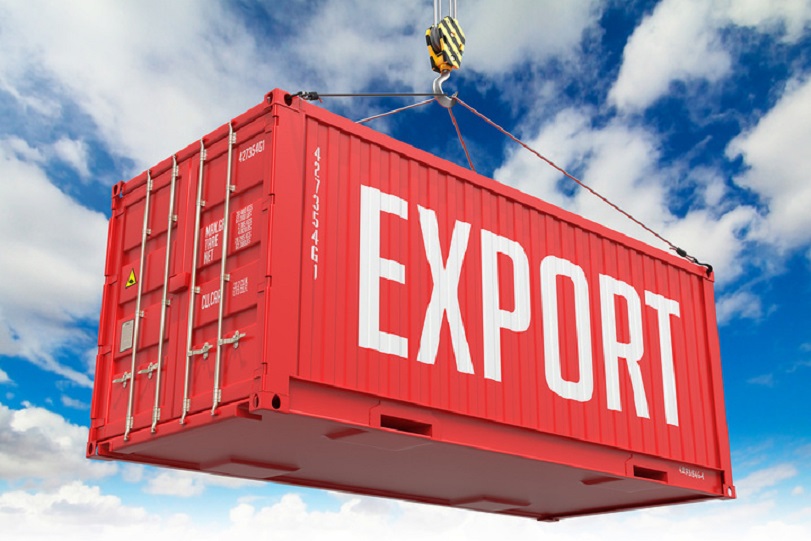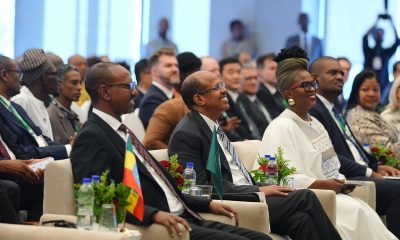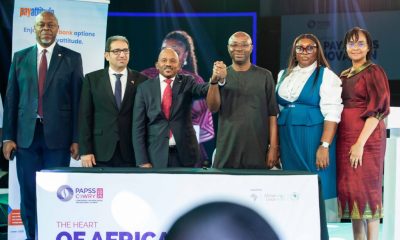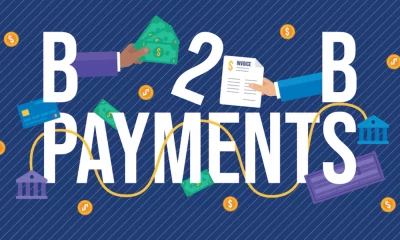Economy
AfCFTA: Nigeria Will Increase Export Value to Africa—Awolowo
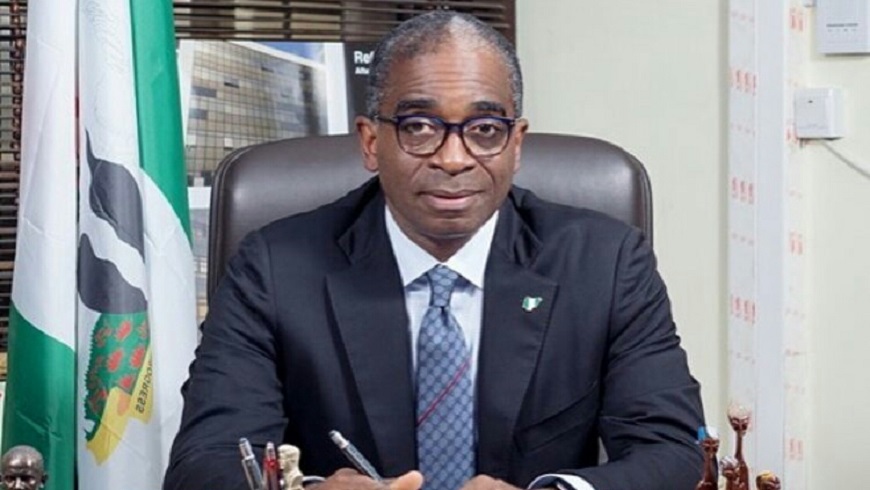
By Modupe Gbadeyanka
Next year, the much-anticipated African Continental Free Trade Area (AfCFTA) will commence and Nigeria is expected to use the platform to increase the value of its export to the continent.
In 2018, the export value of Nigeria to Africa totalled around $6.99 billion, while to the rest of the world stood at $45.92 billion, the CEO of the Nigeria Export Promotion Council (NEPC), Mr Segun Awolowo, said.
Speaking at the Ecobank Digital Series virtual Africa Trade Conference 2020, Mr Awolowo stated that Nigeria’s export is majorly crude oil and natural gas which constitute 91 per cent.
But he said with the activation of AfCFTA, the export value of the country, the largest economy in Africa, should rise exponentially.
According to him, efforts would be made to explore the market of 1.2 billion people and combined Gross Domestic Product (GDP) of $3 trillion Africa boasts of.
He said with these figures, there is huge potential for Nigeria to increase its export to Africa, noting that before now, the exports had been informal exports, but with platforms like Ecobank, it is going to be formal and add real value to the economy.
Mr Awolowo informed participants of the event that NEPC has identified areas of untapped potential for Nigeria in Africa such as fertilizer, ginger and sesame, as these are what other African countries are buying.
“Nigeria must, and can, live in a world where it no longer sells oil. Nigeria is working on key game changers in infrastructure in order to achieve this, especially in the area of ease of transportation and also in the area of incentives, export expansion grant like pre-shipment incentives and export development fund, which serve to prepare, facilitate and support exporters to the global market,” he stated.
Another speaker at the event, Mr Tei Konzi, who is the Commissioner, Trade, Customs and Free Movement at ECOWAS, explained that AfCFTA is a comprehensive trade agreement that seeks to create a single market for goods and services and free movement of persons through the progressive liberation of the market for goods and services and also contribute to the movement of capital to facilitate investment.
“We can bring these trades back to Africa and increase activity in the continent in agriculture, mining amongst others.
“We are yet to conclude our tariffs, but at the moment, ECOWAS trade more with outside countries than it does with African countries and this is why we are bent on making sure the AfCFTA succeeds,” Mr Konzi, who was represented by Mr Kolawole Sofola, the Acting Director, Trade ECOWAS, stated.
In his presentation, the CEO of Ecobank Transnational Incorporated (ETI), the parent firm of Ecobank, Mr Ade Ayeyemi, reiterated that African countries must adopt a continent-wide approach to business and also focus on wealth creation to be relevant in the global value chain.
For AfCFTA to become a reality, Mr Ayeyemi said there must be commitment and readiness for trade facilitation by the individual nations.
He noted that African governments must unequivocally commit to the agreement and their preparedness as individual nations with their implementation strategies, commitment to free movement-signing and ratification of the protocol on the free movement of people and country’s visa openness, readiness for trade facilitation – the quality of trade infrastructure and efficiency of ports/Customs, which is still work in progress in nearly all countries.
Mr Ayeyemi noted that Ecobank is fully committed to Africa as the foremost Pan-African Bank to Unequivocal support for the implementation of AfCFTA, readiness to use its unique pan-African platform to facilitate trade, payment and business and deployment of its strong Africa knowledge to support governments and businesses.
The Ecobank CEO emphasized that “no country is so poor that it has nothing to give and no country is so rich that it has nothing to receive. All of us must come together to become better.”
The Ecobank virtual Nigeria Africa Trade Conference 2020, which is part of the Ecobank Digital Series, is to showcase the bank’s unique intra-Africa trade solutions that enable settlements of international transactions and mitigation of payment risk while providing regional solutions to exporters.
Ecobank trade products and solutions are designed around two broad areas; Trade Finance and Trade Services. Trade Finance enables customers to benefit from adequate and well-mitigated credit facilitation in the area of Import finance, export finance, bill discounting, trade loans, distributor finance, payables and receivables finance, structured trade and commodity finance amongst others while trade services, offer our customers the advantage of speedy turnaround and error-free processing of their import letter of credits, import collections, avalised bills, customs bonds, export collections as well as their local purchase orders and payment invoices, via its electronic trade platforms OMNI e-Trade and OMNI eFSC (electronic financial supply chain.
Economy
Nigeria’s Economy Expands 4.07% in Q4 2025

By Adedapo Adesanya
Nigeria’s economy, measured by gross domestic product (GDP), grew by 4.07 per cent (year-on-year) in real terms in the fourth quarter (Q4) of 2025.
The National Bureau of Statistics (NBS) announced the development in its latest GDP report for Q4 2025 on Friday.
The latest figure represents an improvement over the 3.76 per cent growth recorded in the corresponding period of 2024, signalling sustained recovery across key sectors of the economy. The growth rate was faster than the third quarter’s 3.98 per cent.
The report confirmed that Nigeria’s oil sector grew 6.79 per cent year-on-year and the non-oil part of the economy expanded by 3.99 per cent.
Nigeria’s average daily oil production stood at 1.58 million barrels per day in the final three months of 2025. That was lower than the third quarter’s output of 1.64 million barrels per day but higher than the 1.54 million barrels per day in the fourth quarter of 2024.
Breakdown of the data showed that the agriculture sector grew by 4.00 per cent in the fourth quarter of 2025. This marks a significant increase compared to the 2.54 per cent growth recorded in the same quarter of 2024, reflecting improved output and resilience in the sector.
The industry sector also recorded a stronger performance during the period under review. It grew by 3.88 per cent year-on-year, up from 2.49 per cent posted in the fourth quarter of 2024. The improvement suggests enhanced activity in manufacturing, construction, and related industrial sub-sectors.
The services sector maintained its position as a major growth driver, expanding by 4.15 per cent in Q4 2025. However, this was slightly lower than the 4.75 per cent growth recorded in the corresponding quarter of the previous year.
Overall, the 4.07 per cent GDP growth in the final quarter of 2025 underscores broad-based expansion across agriculture, industry, and services, despite a marginal moderation in services growth.
The Q4 performance provides further evidence of strengthening economic momentum, with improvements recorded in both agriculture and industry compared to the previous year.
Economy
Flour Mills Supports 2026 Paris International Agricultural Show

By Modupe Gbadeyanka
For the second time, Flour Mills of Nigeria Plc is sponsoring the Paris International Agricultural Show (PIAS) as part of its strategies to fortify its ties with France.
The 2026 PIAS kicked off on February 21 and will end on March 1, with about 607,503 visitors, nearly 4,000 animals, and over 1,000 exhibitors in attendance last year, and this year’s programme has already shown signs of being bigger and better.
The theme for this year’s event is Generations Solution. It is to foster knowledge transfer from younger generations and structure processes through which knowledge can be harnessed to drive technological advancement within the global agricultural sector.
In his address on the inaugural day of the Nigerian Pavilion on February 23, the Managing Director for FMN Agro and Director of Strategic Engagement/Stakeholder Relations, Mr Sadiq Usman, said, “At FMN, our mission is Feeding and Enriching Lives Every Day.
“This is a mandate we have fulfilled through decades of economic shifts, rooted in a culture of deep resilience and constant innovation. We support this pavilion because FMN recognises that the next frontier of global Agribusiness lies in high-level technical exchange.
“We thank the France-Nigeria Business Council (FNBC), the organisers of the PIAS, and our fellow members of the Nigerian Pavilion – Dangote, BUA, Zenith, Access, and our partners at Creativo El Matador and Soilless Farm Lab— we are exceedingly pleased to work to showcase the true face of Nigerian commerce.”
Speaking on the invaluable nature of the relationship between Nigeria and France, and the FMN’s commitment to process and product innovation, Mr John G. Coumantaros, stated, “The France – Nigeria relationship is a valuable partnership built on a shared value agenda that fosters remarkable Intercontinental trade growth.
“Also, as an organisation with over six decades of transformational footprint in Nigeria and progressively across the African Continent, FMN has been unwaveringly committed to product and process innovation.
“Therefore, our continuous partnership with France for the success of the Paris International Agricultural Show further buttresses the thriving relationship between both countries.”
PIAS is one of the most widely attended agricultural shows, with thousands of people from across the world in attendance.
Economy
NEITI Backs Tinubu’s Executive Order 9 on Oil Revenue Remittances

By Adedapo Adesanya
Despite reservations from some quarters, the Nigeria Extractive Industries Transparency Initiative (NEITI) has praised President Bola Tinubu’s Executive Order 9, which mandates direct remittances of all government revenues from tax oil, profit oil, profit gas, and royalty oil under Production Sharing Contracts, profit sharing, and risk service contracts straight to the Federation Account.
Issued on February 13, 2026, the order aims to safeguard oil and gas revenues, curb wasteful spending, and eliminate leakages by requiring operators to pay all entitlements directly into the federation account.
NEITI executive secretary, Musa Sarkin Adar, called it “a bold step in ongoing fiscal reforms to improve financial transparency, strengthen accountability, and mobilise resources for citizens’ development,” noting that the directive aligns with Section 162 of Nigeria’s Constitution.
He noted that for 20 years, NEITI has pushed for all government revenues to flow into the Federation Account transparently, calling the move a win.
For instance, in its 2017 report titled Unremitted Funds, Economic Recovery and Oil Sector Reform, NEITI revealed that over $20 billion in due remittances had not reached the government, fueling fiscal woes and prompting high-level reforms.
Mr Adar described the order as a key milestone in Nigeria’s EITI implementation and urged amendments to align it with these reforms.
He affirmed NEITI’s role in the Petroleum Industry Act (PIA) and pledged close collaboration with stakeholders, anti-corruption bodies, and partners to sustain transparent management of Nigeria’s mineral resources.
Meanwhile, others like the Petroleum and Natural Gas Senior Staff Association of Nigeria (PENGASSAN) have kicked against the order, saying it poses a serious threat to the stability of the oil and gas industry, calling it a “direct attack” on the PIA.
Speaking at the union’s National Executive Council (NEC) meeting in Abuja on Tuesday, PENGASSAN President, Mr Festus Osifo, said provisions of the order, particularly the directive to remit 30 per cent of profit oil from Production Sharing Contracts (PSCs) directly to the Federation Account, could destabilise operations at the Nigerian National Petroleum Company (NNPC) Limited.
Mr Osifo firmly dispelled rumours of imminent protests by the union, despite widespread claims that the controversial executive order threatens the livelihoods of 10,000 senior staff workers at NNPC.
He noted, however, that the union had begun engagements with government officials, including the Presidential Implementation Committee, and expressed optimism that common ground would be reached.
Mr Osifo, who also serves as President of the Trade Union Congress (TUC), expressed concerns that diverting the 30 per cent profit oil allocation to the Federation Account Allocation Committee (FAAC), without clearly defining how the statutory management fee would be refunded to NNPC, could affect the salaries of hundreds of PENGASSAN members.
-

 Feature/OPED6 years ago
Feature/OPED6 years agoDavos was Different this year
-
Travel/Tourism10 years ago
Lagos Seals Western Lodge Hotel In Ikorodu
-

 Showbiz3 years ago
Showbiz3 years agoEstranged Lover Releases Videos of Empress Njamah Bathing
-

 Banking8 years ago
Banking8 years agoSort Codes of GTBank Branches in Nigeria
-

 Economy3 years ago
Economy3 years agoSubsidy Removal: CNG at N130 Per Litre Cheaper Than Petrol—IPMAN
-

 Banking3 years ago
Banking3 years agoSort Codes of UBA Branches in Nigeria
-

 Banking3 years ago
Banking3 years agoFirst Bank Announces Planned Downtime
-

 Sports3 years ago
Sports3 years agoHighest Paid Nigerian Footballer – How Much Do Nigerian Footballers Earn


